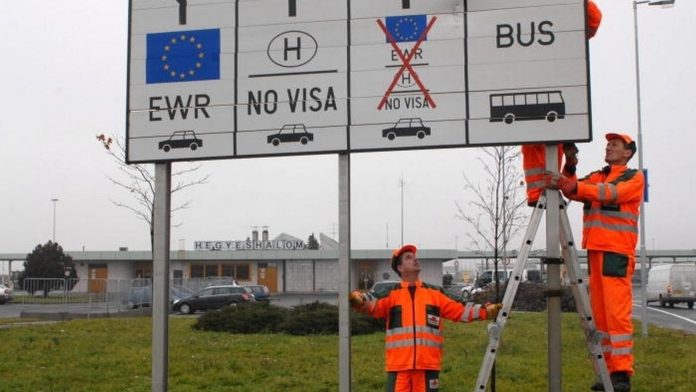Interior ministers met in Luxembourg on Thursday on the challenge of strengthening security in the Schengen area.
According to EU Home Affairs Commissioner Ylva Johansson, the choice of the topic was motivated by the need to strengthen the security of the Schengen area after the terrorist attacks in France’s Arras on 13 October and Belgium’s Brussels on 16 October.
Another key topic of the meeting was expediting the return of failed asylum seekers to the EU. Johansson said that the number of returnees had increased by 20 per cent this year, but that there was still a need for further action. She added:
“Especially, we must forcibly and immediately deport individuals who pose a security threat to our citizens and the Union.”
Johansson said countries that did not take part in the repatriation of their citizens would face difficulties when applying for Schengen visas.
During Thursday’s meeting, ministers will examine the possible impact of the war in the Middle East on EU migration. Following the 2015-2016 migration crisis, the EU has been exploring strategies to tackle irregular migration.
The 2020 Agreement on Migration and Asylum proposed by the EU includes key elements such as strengthening the EU’s external borders, fair distribution of migrants between member states, accelerating the processing of asylum claims and facilitating the return of rejected applicants to their countries of origin. However, due to the different views of EU member states, this agreement was not reached.
Meanwhile, the EU will give member states more leeway in suspending visa-free travel agreements. The EU Commission says the unstable geopolitical situation has provoked new challenges to visa-free travel. As examples of hybrid threats, the statement cites “increased irregular migration due to inconsistency with EU visa policies, citizenship programmes for investors in visa-free countries or state-supported instrumentalisation of migrants”.
The new rules oblige member states to put forward broader and more flexible justifications for suspending visa-free travel. The EU is concerned about the entry of irregular migrants from some of the 60 visa-free countries.
In her comment on the issue, Ylva Johansson said that last year about 150,000 people from third countries with which the EU has a visa-free regime applied for asylum. She stressed:
“Visa-free travel should not be used in this way.”
Schengen Area signifies a zone where 27 European countries abolished their internal borders, for the free and unrestricted movement of people, in harmony with common rules for controlling external borders and fighting criminality by strengthening the common judicial system and police cooperation.
